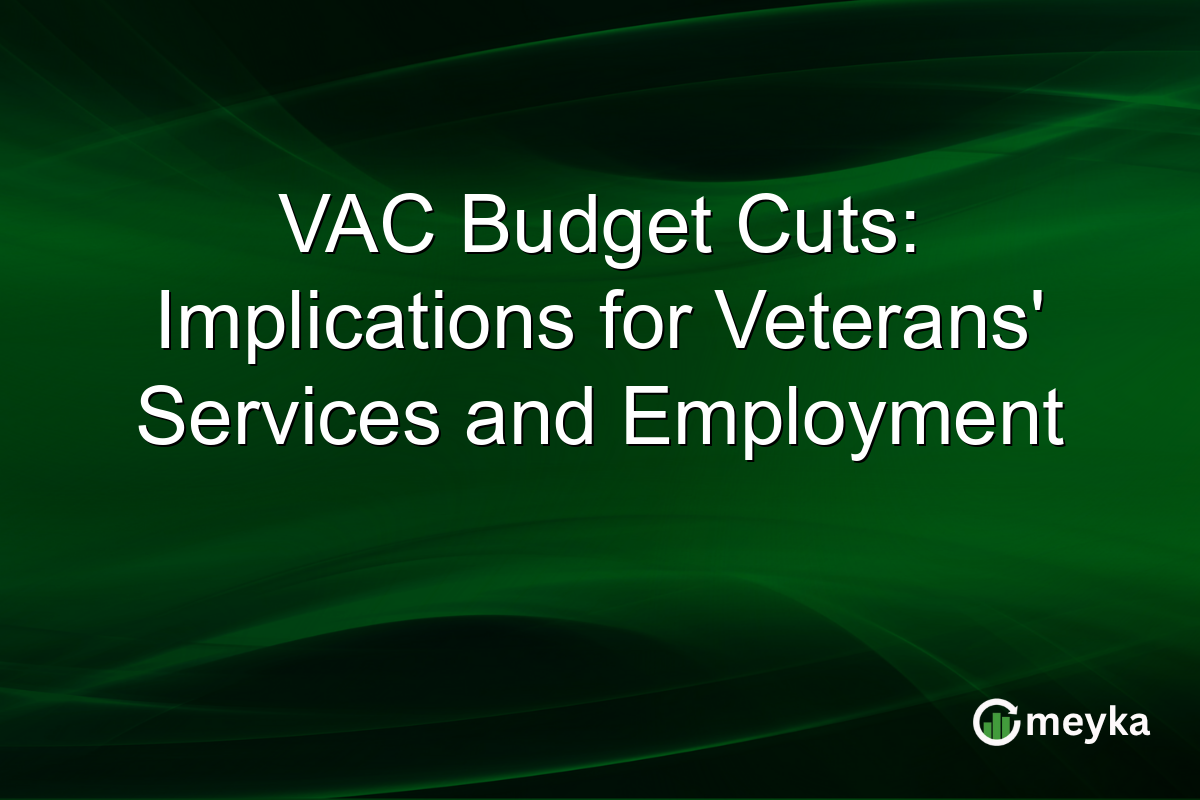VAC Budget Cuts: Implications for Veterans’ Services and Employment
Recently, the Canadian government announced significant reductions in the Veterans Affairs Canada (VAC) budget, totaling $4.23 billion over the next four years. This move is part of the federal budget 2025 and aims to streamline government spending. However, these cuts prompt serious concerns about how they will affect veteran services and public sector employment. Immediate consequences are expected, raising important questions about future support for Canada’s veterans.
Continue Reading on Meyka
This article is available in full on our main platform. Get access to complete analysis, stock insights, and more.
Read Full Article →





